Current Project: 2024 - 2027
RLA 7/028 – Strengthening Regional Capabilities on the Application of Nuclear and Isotopic Techniques to Increase Knowledge about Stressors that Affect Marine and Coastal Sustainable Management (ARCAL CLXXXIX)
Previous Projects:
RLA 7/025 – Strengthening Capacities in Marine and Coastal Environments Using Nuclear and Isotopic Techniques (2020-2023).
RLA 7/022 – Strengthening Regional Monitoring and Response for Sustainable Marine and Coastal Environments (ARCAL CXLV) (2018-2019).
RLA 7/020 - Establishing the Caribbean Observing Network for Ocean Acidification and its Impact on Harmful Algal Blooms, using Nuclear and Isotopic Techniques. (2014-2017)
RLA 7/014 – Designing and Implementing Systems for Early Warning and Evaluation of the Toxicity of Harmful Algal Blooms in the Caribbean Region, Applying Advanced Nuclear Techniques, Radioecotoxicological Evaluations and Bioassays (2009-2012).
RLA 7/012 – Use of Nuclear Techniques to Address the Management Problems of Coastal Zones in the Caribbean Region. (2007-2012)
Participating Institutions:
Universidad Nacional Autónoma de México (UNAM).

Research Areas:
- Ocean Acidification.
- Chemical Contamination.
- Eutrophication.
- Harmful Algal Blooms (HABs) and Marine Biotoxins.
- Microplastic contamination.
Instituto de Ciencias del Mar y Limnología (ICML).

Research Areas:
- Ocean Acidification.
- Chemical Contamination.
- Eutrophication.
- Harmful Algal Blooms (HABs) and Marine Biotoxins.
- Microplastic contamination.
Unidad de Informática Marina (UNINMAR).

Research Areas:
- Communication
Dirección General Adjunta de Oceanografía. Hidrografía y Meteorología (DIGAOHM).

Research Areas:
- Communication
THE PROBLEM
Mexico, with 11,000 km of coastline, has the largest coastline on the continent and is among the 25 countries in the world with the highest density of coastal population. Along with population growth, waste discharges have increased and caused the deterioration of water quality and sediments, due to contamination by heavy metals, pesticides, hydrocarbons, microplastics and nutrients. These pressure factors are reflected in the decrease in biodiversity, ecosystem services and the socioeconomic impoverishment of coastal communities.
The high concentrations of nutrients, associated with the proliferation of harmful algal blooms (HABs) cause the mortality of mammals, turtles, fish and seabirds and affect human health. In Mexico, the consumption of molluscs and fish contaminated with toxins has caused 21 deaths and around 1,000 poisonings between 1970 and 2015. The 61 HAB events between 2003 and 2014 caused health emergencies and closures for 2,500 days, with the direct impact to coastal communities.
Marine absorption of carbon dioxide released into the atmosphere, mainly due to the burning of fossil fuels and changes in land use, causes ocean acidification. Some coastal areas of Mexico are affected by acidic and low-oxygen waters. Acidification damages coral reefs and reduces biodiversity, with the consequent impact on relevant economic sectors such as tourism and fishing. Mexico ranks 6th in the world in international tourist arrivals and tourism represents almost 9% of the national GDP. On the other hand, Mexico ranked 4th in volume of fishing in America in the period 2003-2013 and with an annual production of 1.4 million tons per year, fishing generates some 350,000 direct jobs and more than 2 million indirect ones. Little is known about the effects of acidification on the health of our seas, so it is essential to monitor acidity and assess its recent trends, for which it is essential to promote international collaboration for capacity building and transfer of technologies.
INFORMATION FOR ACTION
The Instituto de Ciencias del Mar y Limnología (ICML) de la Universidad Nacional Autónoma de México, in collaboration with REMARCO, a regional marine and coastal research network that encompasses 15 countries in Latin America and the Caribbean, conducts high-quality research and supports the training of human resources on the use of nuclear and conventional techniques for the diagnosis of the current state and temporal trends of marine pollution, the abundance of microplastics, ocean acidification and the occurrence of HABs. As a result of the collaboration with REMARCO, the ICML has actively participated in the integration of the 210 records of HAB events that occurred in Mexico, documented in the HAEDAT international platform.
The ICML has the capacities and infrastructure for the analysis of heavy metals by atomic absorption spectrometry and X-ray fluorescence spectrometry; of marine biotoxins by high performance liquid chromatography; and for the identification of the species that cause HABs by light and electron microscopy. UNAM's "Coastal Observatories of Global and Climate Change" monitor marine acidification using advanced laboratory techniques and state-of-the-art autonomous continuous recording probes. In addition, the ICML has the only laboratory in Mexico specialized in dating sediment and coral cores, with 210Pb, an irreplaceable methodology for the evaluation of anthropogenic impacts on the marine environment during the last century, based on nuclear techniques such as alpha particle and gamma ray spectrometry.
Country Members:
Ana Carolina Ruíz Fernández. PhD in Marine Sciences, specializing in Marine Oceanography.
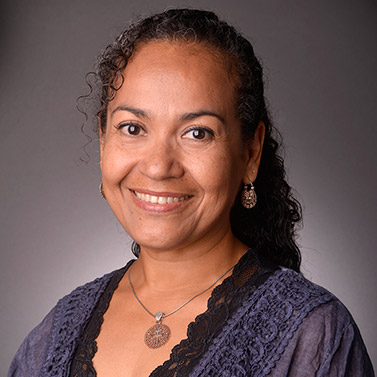
Instituto de Ciencias del Mar y Limnología-UNAM.
Role in the Project: National Coordinator Mexico. Specialist in sediment dating using radiometric techniques, and in contamination (heavy metals, nutrients, microplastics, persistent organic compounds).
Contact info: caro@ola.icmyl.unam.mx / teléfono +52 669 9852845
She is a specialist in the use of radioactive and stable isotopes, and geochemical indicators, for the study of global change trends (climate change and pollution impact) through the analysis of sedimentary cores dated with 210Pb. She has a special interest in the temporal reconstruction of fluxes and inventories of organic carbon, nutrient pollution, metals, microplastics, and persistent organic compounds in marine and continental systems. She has participated in 135 scientific articles published in internationally indexed journals. She boasts an H index = 33 (Scopus, Sep 13, 2021).
She has received the university awards "Sor Juana Inés de la Cruz" for her outstanding work as a researcher; the Alfonso Caso and Gabino Barreda university merit medals, as well as the Sinaloa Prize for Science, Technology and Innovation 2018. She is an associate researcher at the GEOTOP Center of the University of Quebec in Montreal and associate editor of the journals Hidrobiológica and Journal of Paleolymnology.
She is an accredited tutor for the Postgraduate programs in Marine Sciences and Limnology, and the Program in Sustainability Sciences. She has directed 35 theses (13 undergraduate and 20 postgraduate) and is part of the teaching group in charge of the subjects of Aquatic Chemistry, Aquatic Pollution and the intensive seminars on "Isotope and Micropalentological Tools for the study of Global Change" and " Impact of climate change in the coastal zone of Mexico”. She is the founder and head of the “Isotopic Geochemistry and Geochronology” laboratory.
Rosalba Alonso Rodríguez. Bachelor of Fisheries Biology, Master of Marine Sciences, PhD. in Use, Management and Conservation of Natural Resources.
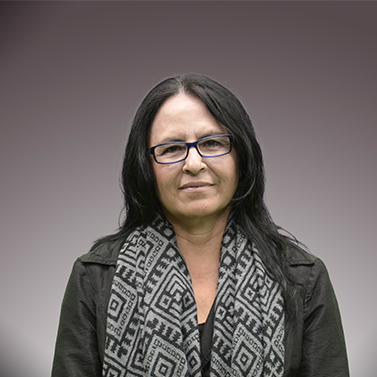
Instituto de Ciencias del Mar y Limnología-UNAM.
Role in the Project: Member of the scientific team (specialist in phytoplankton ecology, harmful algal blooms)
Contact info: rosalba@ola.ycmyl.unam.mx /+52 66 91163533
She has been a researcher at the Instituto de Ciencias del Mar y Limnología-UNAM for more than 15 years developing lines of research related to phycotoxins and their effects on organisms and human health, water quality and ecology of coastal phytoplankton including farming systems.
León Felipe Álvarez Sánchez. Degree in Biology, Master in Marine Sciences and Limnology.
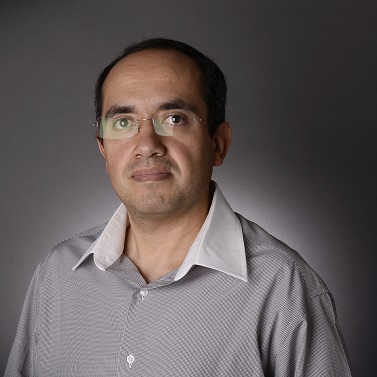
Instituto de Ciencias del Mar y Limnología-UNAM.
Role in the Project: Scientific data manager.
Contact info: leon@cmarl.unam.mx /+52 55 5622 5801
He studied Biology at the Faculty of Sciences of the Universidad Nacional Autónoma de México (UNAM), with a Master's degree in Sciences from the Graduate School of Marine Sciences and Limnology, UNAM. He received complementary and updating studies in the 8th Diploma in Geomatics from the Institute of Geography, UNAM; in the 20th Diploma in Information Technologies of the General Directorate of Computing and Information and Communication Technologies, UNAM; in the 10th Diploma in Remote Sensing and Geographic Information Systems of the Faculty of Sciences, UNAM; and certified in Data Science by IBM. He has collaborated since 2007 as Technical Editor in the Bulletin of the Mexican Geological Society and the Mexican Paleontology magazine. Since 2011 he has been an Academic Technician at the Instituto de Ciencias del Mar y Limnología (ICML), UNAM, being the academic head of the ICML Marine Informatics Unit (UNINMAR).
Raquel Briceño Dueñas. Degree in Marine Biology, MSc. in Fisheries Biology

Instituto de Ciencias del Mar y Limnología-UNAM.
Role in the Project: Science Communication and Outreach Coordinator
Contact info: raquel@ola.icmyl.unam.mx / teléfono +52 669 9852845- Ext 222
Specialist topics:
- Biología de la Conservación; Sistemas de Gestión Ambiental en Zonas Costeras.
- Desarrollo de estrategias participativas multidisciplinarias y multisectoriales para la investigación-acción orientada a la conservación de la biodiversidad marina- costera, en pauta con los objetivos del desarrollo sostenible y la gobernanza.
- Conservation of species at risk with special attention to sea turtles and critical habitats.
José Gilberto Cardoso Mohedano. Degree in Chemistry, Master and Doctorate in Sciences.
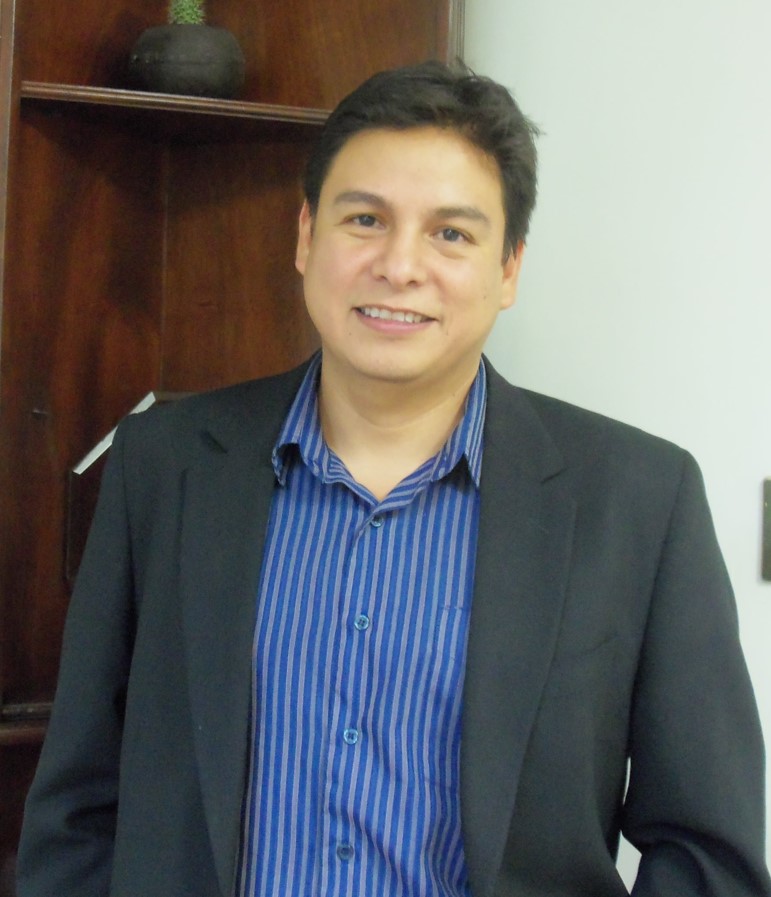
Instituto de Ciencias del Mar y Limnología-UNAM.
Role in the Project: Collaborate in the interpretation of nutrient and eutrophication data; contribute to the preparation of reports of indicator 14.1.1: (a) Index of coastal eutrophication.
Contact info: gcardoso@cmarl.unam.mx / +52 93 81120285
He has conducted numerous studies on aquatic biogeochemistry, marine pollution, and ecological modeling, which have been published in indexed journals. In addition, he has worked as a consultant on projects involving the public and private sectors in studies of industrial safety, feasibility and environmental impact assessment.
Denisse Joana Flores González. Degree in Communication Sciences (journalism), Master in Communication.

Instituto de Ciencias del Mar y Limnología-UNAM.
Role in the Project: Member of the communication team.
Contact info: comunicacion@cmarl.unam.mx /+52 55 3048 5382
She has practiced science journalism in print, digital and television media (national and international). She was one of the editors of the "Science Journalism Laboratory", a project supported by the Mexican National Council of Science and Technology that sought to develop new ways of communicating science from audiovisual media. Academically, she is interested in media analysis, particularly the sociology of news production and media economics. She is currently coordinator of the Office of Communication and Dissemination of the Institute of Marine Sciences and Limnology of UNAM.
Jorge Feliciano Ontiveros Cuadras. PhD. in Sciences.
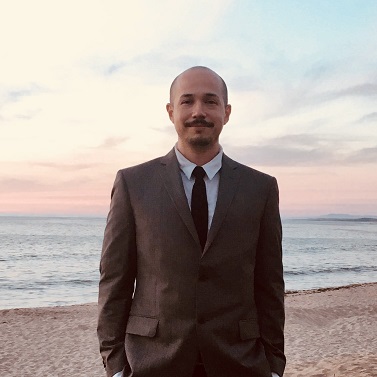
Instituto de Ciencias del Mar y Limnología-UNAM.
Role in the Project: Specialist in microplastic contamination.
Contact info: jontiveros@cmarl.unam.mx / (+52) 55-5623-0222 ext. 25-695
Specialist in sedimentary geochemistry and geochronology with 210Pb, he is a researcher at the Instituto de Ciencias del Mar y Limnología de la UNAM. Responsible for the Aquatic Chemistry laboratory, his line of research is aimed at studying the origin and historical accumulation of metals and metalloids in marine-coastal ecosystems (eg, oxygen minimum zones and coastal lagoons), as well as evaluating contamination by microplastics in the Pacific and Gulf of Mexico coasts.
Federico Páez Osuna. PhD in Marine Sciences and Limnology, specializing in Marine Chemistry.
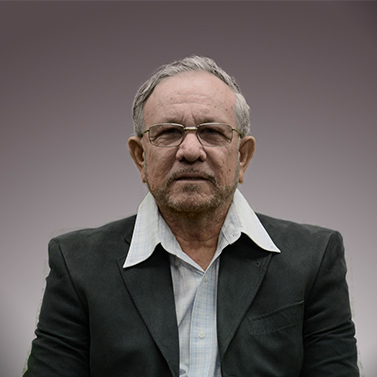
Instituto de Ciencias del Mar y Limnología-UNAM.
Role in the Project: Specialist in contamination by nutrients and microplastics.
Contact info: paezos@ola.icmyl.unam.mx / teléfono +52 669 9852845
Professor and senior researcher at the Mazatlan Academic Unit of the Institute of Marine Sciences and Limnology at UNAM. Biogeochemist who studies aquatic pollution, aquaculture and environmental sustainability. Since 1981 he has been a full professor of the Aquatic Chemistry course in the Postgraduate Course in Marine Sciences and Limnology at UNAM. He has supervised 100 theses (22 doctorate; 47 master's) and trained 16 researchers. He has published more than 250 scientific articles, 10 books, 50 book chapters, and 32 popular articles. He has 5530 citations and an h = 40 in Scopus-Elsevier. Since 2001 he is a level 3 investigator of the National System of Investigators; National Award for Ecological Merit; National University Distinction and "Ezequiel A Chávez" Special Class; Sinaloa Prize for Science and Technology; Full Member of El Colegio de Sinaloa; Has been recognized by UNAM as one of the academics with the most citations in the area of Biology, Ecology and Geosciences. He has been recognized as an Outstanding Reviewer by the scientific journals Aquaculture, Marine Pollution Bulletin y Aquaculture Research. He has been an expert at the International Atomic Energy Agency (IAEA).
Joan Albert Sánchez Cabeza. PhD. in Physical Sciences, Bachelor and Master in Physical Sciences.
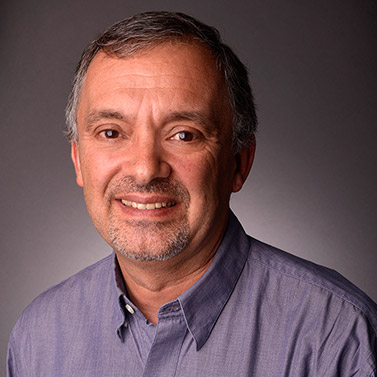
Instituto de Ciencias del Mar y Limnología-UNAM.
Role in the Project: Responsible for Marine Acidification in Mexico.
Contact info: jasanchez@cmarl.unam.mx / +52 669 981 6680
Senior Researcher C of the Instituto de Ciencias del Mar y Limnología de la Unidad Nacional Autónoma de México, with SNI level 3. He was a full professor of the Department of Physics and researcher of the Institute of Environmental Science and Technology of the Autonomous University of Barcelona; Director of the United Nations International Atomic Energy Agency Radiometry Laboratory at the Marine Environment Laboratories (Monaco); Expert and Technical Secretary of the Group of Experts for the Scientific Aspects of the Protection of the Marine Environment of the United Nations (GESAMP).
He is a specialist in the use of radiotracers and isotopes for the study of environmental processes, with special emphasis on the marine environment, such as biogeochemical processes in the water column and sediments, and radiochronology of environmental archives. Currently his research is directed mainly to the study of Global and Climate Change, and he is responsible for the coastal observatories of global and climate change at UNAM. He is the author of more than 170 scientific articles in indexed journals and Editor of the prestigious review journal Earth-Science Reviews.
Raquel del Carmen Sosa Gómez. Degree in Industrial Chemistry, Master in Food Sciences.

Instituto Oceanográfico del Golfo y Mar Caribe. Secretaría de Marina – Armada de México.
Role in the Project: Scientific Data Manager
Contact info: raquel-sg@hotmail.com /+52 2292664929
She studied Industrial Chemistry at the Faculty of Chemical Sciences of the Universidad Veracruzana (UV), with a Master's degree in Food Science from the School of Engineering of the Universidad de las Américas - Puebla. She received training in the area of marine pollution from the Oceanographic Research Station of Ensenada, BC in collaboration with the (UABC). She participated in the international course on monitoring the quality of coastal waters in the Mesoamerican region for the measurement of parameters indicating climate change (third edition) given by the National Water Commission (CONAGUA). She took a military-English course at the University of Colorado. She received gas chromatography and atomic absorption spectroscopy training from the Technological Institute of Boca del Río. Since 2004, she began her military career in the Secretary of the Navy - Navy of Mexico, hiring herself as an oceanographic research officer at the Oceanographic Institute of the Gulf and the Sea, currently she is head of the department of the Marine Pollution Studies Subdirectorate at the aforementioned Institute.
Progress and Challenges
With scientific information of the highest level, the ICML assists in decision-making and the evaluation of protection, mitigation and remediation programs for the solution of environmental problems in the seas of Mexico and the region. It is essential to strengthen support for the maintenance and increase of the available infrastructure that allows ICML-UNAM to continue generating useful information for society, for the management and conservation of marine and coastal resources in Mexico, in the region and in accordance with the global goals for sustainable development.
